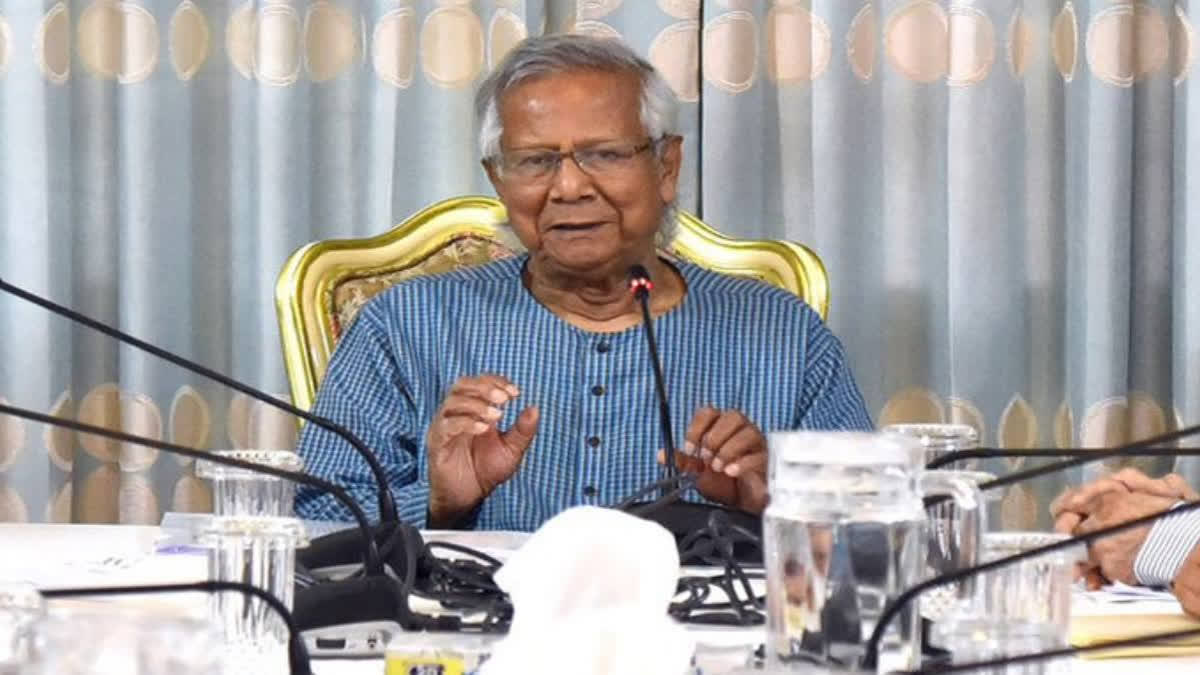New Delhi: Cryptic comments by Bangladesh interim government Chief Adviser Muhammad Yunus regarding holding fresh parliamentary elections have drawn some sharp reactions from the country’s political stakeholders while also raising the spectre of instability in the South Asian region.
During an address to the nation Sunday on the completion of 100 days of the interim government, Yunus appealed to the people of his country to be patient, saying that once decisions on electoral reforms are finalised, “you will soon receive a detailed roadmap for the polls”.
“Until then, I request your patience,” he said. “We aim to establish an electoral system that can be a model for generations to come. This will safeguard our nation from the recurring annual political crises. For this, I am asking for the necessary time from you.”
However, in a separate interview with Qatar-based media outlet Al Jazeera, Yunus implied that the interim government might take up to four years to hold fresh parliamentary elections. “While the exact timeframe for the interim government’s tenure has not been determined, it should be under four years that’s for sure, it may be less,” he told the Doha-headquartered broadcaster.
The general elections held in January this year saw former Prime Minister Sheikh Hasina’s Awami League sweep to power for the fourth time. However, the elections were boycotted by many opposition parties, including the main Bangladesh Nationalist Party (BNP) as these were not held under a caretaker government.
Then, in July this year, a student movement seeking equality in job reservations exploded into a mass uprising against what people called Hasina’s authoritarian style of governance. Hasina, who is seen as pro-India, was then ousted from power and she fled to India on August 5. President Mohammed Shahabuddin then dissolved the country’s parliament on August 6 and installed the new interim government headed by Nobel laureate Yunus on August 8.
The current interim government is extra-constitutional as the system was abolished under Hasina in 2011. However, earlier such constitutionally valid interim governments were mandated to hold fresh elections within three months after assuming power. That is why the statements made by Yunus regarding the holding of fresh parliamentary polls have drawn reactions from other stakeholders in the country’s political landscape.
Speaking during a programme at the National Press Club in Dhaka Monday, BNP general secretary general Mirza Fakhrul Islam Alamgir voiced frustration over Yunus’s address to the nation Sunday. “…I am a bit disappointed,” the Dhaka Tribune quoted Fakhrul as saying. “I was hoping that the Chief Adviser, with all his wisdom, would identify the problems and give an outline for the election.”
According to Fakhrul, elections can solve half of the country’s problems, regardless of whether the BNP comes to power or not. He further said that those who want to harm and destabilise Bangladesh and lead the country into conflict will be forced to back down if an elected government is formed with the mandate of the people.
During his address to the nation, Yunus had alleged that leaders of the deposed Awami League government were seeking to destabilise the administration and trying to return to power “with their ill-gotten wealth”.
However, Fakhrul said that those who want to harm and destabilise Bangladesh and lead the country into conflict would be forced to back down if an elected government is formed with the mandate of the people.
“We do not just want reforms, we have initiated them and we will do them,” the Dhaka Tribune report quoted him as saying. “We request you to move forward with a people-accepted approach. We have not created any obstacles so far; rather, we are supporting you in every case.”
